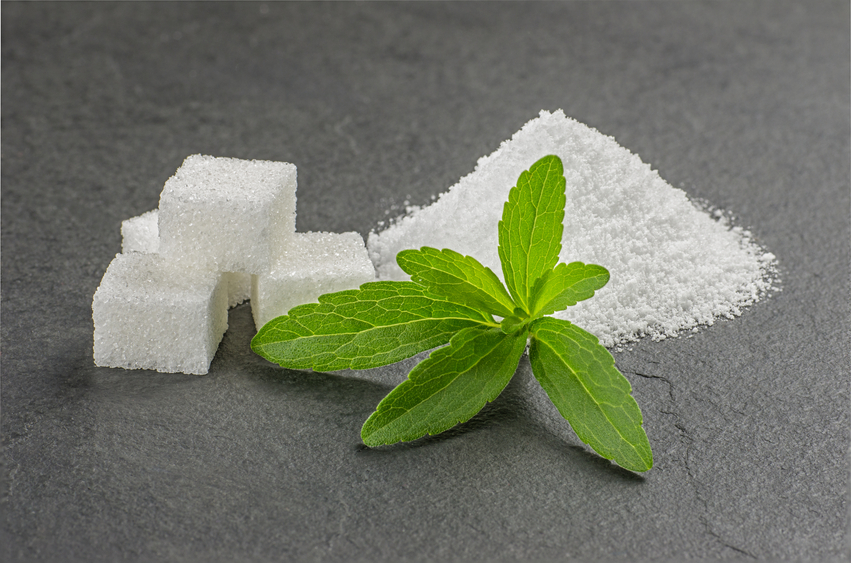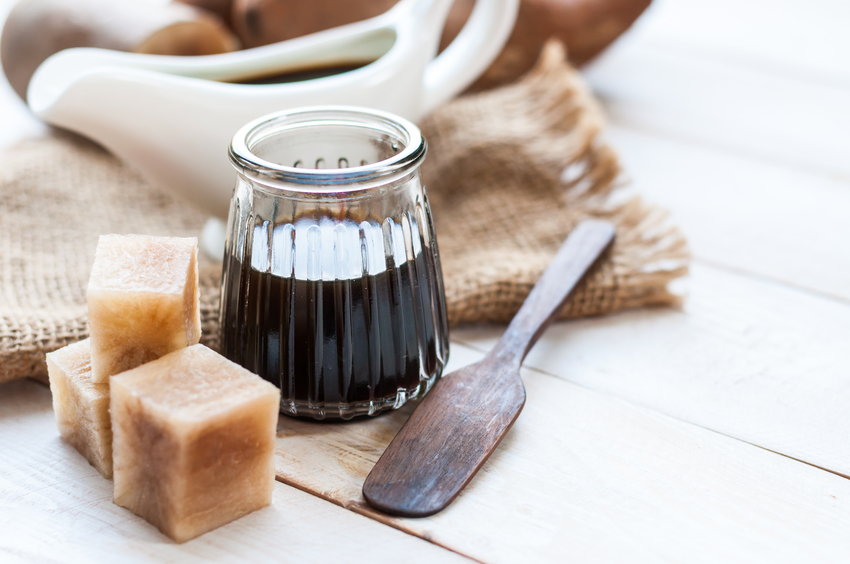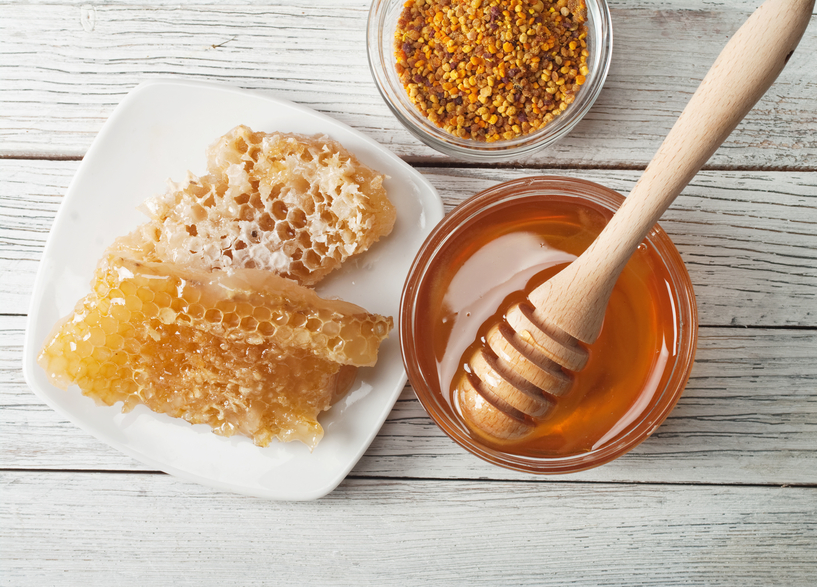Quitting refined sugar can be tough, but given how incredibly harmful sugar can be, it is definitely worth the effort. Kris Gunners shows us some worthy alternative sweeteners…

Stevia
Stevia is a very popular low-calorie sweetener. It is extracted from the leaves of a plant called stevia rebaudiana. This plant has been grown for sweetness and medicinal purposes for centuries in South America.
There are several sweet compounds found in stevia leaves, the main ones are stevioside and rebaudioside A. Both are many hundred times sweeter than sugar, gram for gram. Stevia is very sweet, but has virtually no calories, and studies have found that it can lower both blood pressure and blood sugar levels.
If you need to sweeten something, Stevia may be the healthiest choice. However, many people really hate the taste. It does depend on the brand though – you may need to experiment to find one that you like.
Erythritol
Erythritol is another low-calorie sweetener. It is a sugar alcohol that is found naturally in certain fruits, but if you’re buying powdered erythritol then it will most likely be made via an industrial process. It contains 0.24 calories per gram, or about 6% of the calories as sugar, with 70% of the sweetness.
Erythritol doesn’t spike blood sugar or insulin levels and has no effect on biomarkers like cholesterol or triglycerides. It is absorbed into the body from the intestine, but eventually excreted from the kidneys unchanged.
Studies show that erythritol is very safe. However, as with other sugar alcohols, it can cause digestive issues if you consume too much at a time. Erythritol tastes very much like sugar, although it can have a mild aftertaste.
Xylitol
Xylitol is a sugar alcohol with a sweetness similar to sugar. It is a very popular sweetener as it contains just 2.4 calories per gram, or about two-thirds of the caloric value of sugar.
Xylitol appears to have some benefits for dental health, reducing the risk of cavities and dental decay. It may also improve bone density, helping to prevent osteoporosis. Xylitol doesn’t raise blood sugar or insulin levels. However, as with other sugar alcohols, it can cause digestive side effects at high doses.
If you have a dog in your home, then you might want to keep xylitol out of the house because it is highly toxic to dogs.
Yacon Syrup

Yacon syrup is harvested from the yacon plant, which grows natively in South America.
This sweetener has recently become popular as a weight-loss supplement, because one study found that it caused significant weight loss in overweight women. It is very high in fructooligosaccharides, which function as soluble fibres that feed the good bacteria in the intestine.
Yacon syrup can help against constipation and has various other benefits due to the high amount of soluble. Don’t eat too much at a time though, as it can cause digestive problems.
What about ‘less bad’ sugars like honey?

There are several popular sweeteners that health conscious people often eat instead of sugar. These include coconut sugar, molasses, honey and maple syrup. The harmful effects of sugar depend completely on the context. Most of the studies are done on people who are already eating a high-carb, Western junk food diet.
For those people, especially those who are overweight and/or insulin resistant, large amounts of sugar are downright toxic.
Other people can eat sugar in small amounts without harm. It is still empty calories and will still be bad for your teeth, but it won’t harm your metabolism, give you fatty liver or end up destroying your health.
If you’re one of those people who eat healthy, but like to to bake stuff with healthy ingredients, then I don’t see a problem with using natural sugar-based sweeteners like honey, as long as the majority of your diet is based on real food. In the context of a healthy, real food based diet, small amounts of these natural sugars won’t cause harm.
